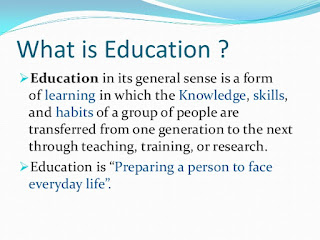The purpose of education
A more pertinent and useful discussion is concerned with the purpose of education, as it is only through this that any definition will begin to make sense. Throughout this volume, the chapters examine the role of education as the development of morality, a meritocracy that separates individuals according to ability, and as a tool to ensure that the status quo of class, ethnicity and gender mixes in society is maintained. What all of these elements suggest is that education has a role to play in preparing individuals to form a useful part of society.
Many articles and chapters discussing education highlight the views of Peters (1966), who described education as being something that we intend to transmit, that we transmit it in a morally acceptable way, and that, furthermore, what we are transmitting should be worthwhile.
This attempt at a definition is of course highly problematic. What information could be considered worthwhile bearing in mind that we are, in the case of primary school children, seeking to predict what will be worthwhile in 20 years time? With the rise of the internet and its accessibility on phones and other mobile technology, is it still useful to learn facts such as the names of kings and queens through the ages or capital cities when we can easily access that information at the touch of a few buttons? Of course, it would be easy to put together a compelling argument that suggests the learning of these facts was never useful but it does raise questions on what knowledge is necessary, worthwhile and useful.
Many articles and chapters discussing education highlight the views of Peters (1966), who described education as being something that we intend to transmit, that we transmit it in a morally acceptable way, and that, furthermore, what we are transmitting should be worthwhile.
This attempt at a definition is of course highly problematic. What information could be considered worthwhile bearing in mind that we are, in the case of primary school children, seeking to predict what will be worthwhile in 20 years time? With the rise of the internet and its accessibility on phones and other mobile technology, is it still useful to learn facts such as the names of kings and queens through the ages or capital cities when we can easily access that information at the touch of a few buttons? Of course, it would be easy to put together a compelling argument that suggests the learning of these facts was never useful but it does raise questions on what knowledge is necessary, worthwhile and useful.

Comments
Post a Comment